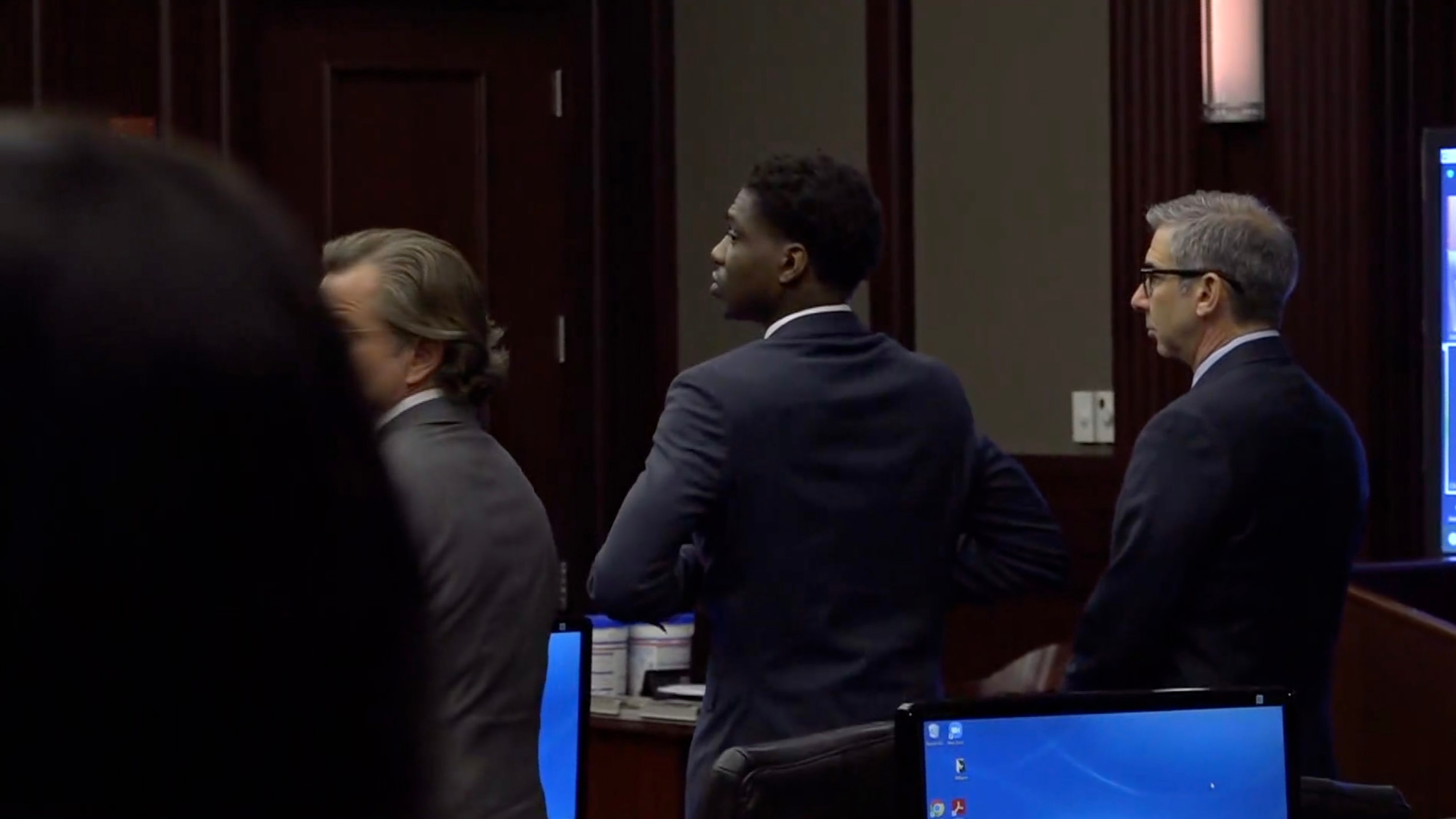Rapper found not guilty in case where lyrics were used as evidence
Spinabenz' lyrics were cited by prosecutors as part of the alleged evidence.
Jacksonville rapper Spinabenz, a star in the city's burgeoning drill music scene, was found not guilty by a jury on a charge of possession of a firearm by a convicted felon after his lyrics were used against him as part of the alleged evidence.
Spinabenz, whose real name is Noah Williams, pleaded not guilty in the case where prosecutors used lyrics from his song, "My Glock" to argue that his girlfriend purchased a weapon for him that was found and confiscated during a traffic stop.
Felons in the state of Florida are barred from owning firearms and Williams, who was previously convicted on a felony weapons charge, was facing up to 30 years in prison after prosecutors introduced a gang enhancement in the case, which according to his attorneys doubled his potential sentence.
A jury found him not guilty on Thursday.

In an Instagram story shared on Friday on the rapper's verified Instagram account, which has more than 316,000 followers, a message in response to the verdict was posted, saying, "They can't stop the spinning."
"He was, I would say, elated," Williams' attorney David Bigney told ABC News on Friday about Williams' reaction to the verdict.
A spokesperson for the the State Attorney of the Fourth Judicial Circuit of Florida Melissa Nelson told ABC News that prosecutors "respect the jury’s decision."
"Williams was arrested and charged with Possession of a Firearm by a Convicted Felon after March 3, 2021, traffic stop where a handgun with his DNA was found in the car. The primary evidence was the gun and Williams’ DNA on the gun — the lyrics were ancillary evidence mainly used to establish a timeline," spokesman David Chapman told ABC News.
Prosecutors argued that 18% of the DNA found on the gun belonged to Williams, but his attorneys argued that this did not prove that he used the gun or that the gun belonged to him, according to WJXX, an ABC affiliated station in Jacksonville.
Prosecutors also argued that Williams' girlfriend, who legally purchased a firearm, bought it for the rapper, referencing lyrics like "my Glock cost $300" and a line where Spinabenz raps about having a woman buy him a gun if she is "over 18."
Prosecutors referenced the lyrics in closing arguments and pointed to the song's release date, which was weeks after the weapon was purchased by his girlfriend, according to WJXX.
Eckhart said that the rapper's lyrics were "central" to the prosecution's argument in this case and were characterized as an alleged "admission" of his guilt.

The use of rap lyrics as alleged evidence in criminal proceedings is a common and controversial practice in the U.S. that has become more prevalent over the past decades, according to Erik Nielson, co-author of the 2019 book, "Rap on Trial." Neilson previously told ABC News that the practice has gained national attention after the May indictment of hip-hop stars Young Thug and Gunna on gang-related charges in a case where their lyrics are part of the alleged evidence.
Bigney and Eckhart said prosecutors attempted to introduce lyrics from several other Spinabez songs into this case, including his viral hit, "Who I Smoke," but after his defense argued during pre-trial hearings that the lyrics have no factual connection to the case and would have a "prejudicial" impact on the jury, the judge ruled that they were inadmissible.
"In closing arguments we discussed how artists, even though sometimes they may write lyrics based on reality, that other times they do not," Bigney told ABC News. "And the example that we gave was Bob Marley, who certainly sang about actual events, [but] also sang a song, 'I Shot the Sheriff,' and suggested that just because he sang a song about shooting the sheriff doesn't mean that he did."
Williams has been in custody since August after he allegedly removed his ankle monitor while he was on house arrest. According to his attorneys, he still faces up to five years in prison on a charge of tampering with an electronic monitoring device, which is a third-degree felony, as well as a misdemeanor charge for criminal mischief. He pleaded not guilty.
Williams is being held on a $300,000 bond, but his attorneys filed a motion on Friday to reduce the amount.




